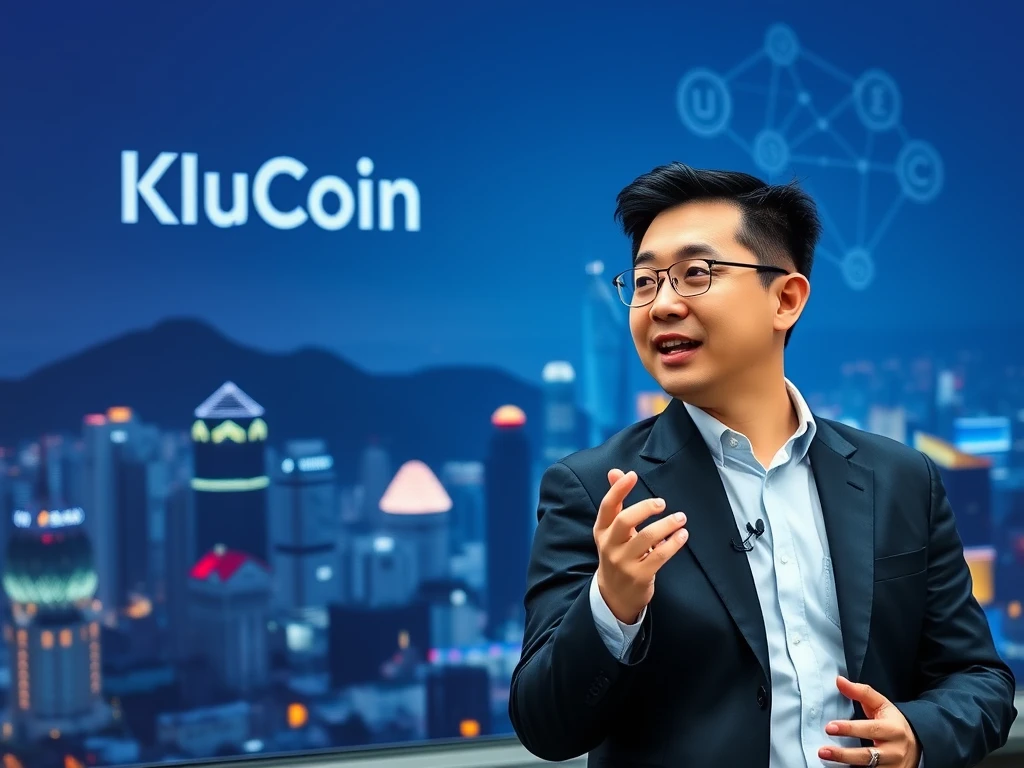Strategic Move: KuCoin CEO Plans South Korea Reentry Amid Regulatory Challenges

The dynamic world of cryptocurrency exchanges is constantly shaped by global regulatory landscapes. A significant development has emerged as KuCoin, a prominent crypto exchange, signals its intent to re-enter the South Korea market after facing regulatory hurdles. This move underscores the complex dance between global platforms and national authorities.
KuCoin South Korea: Understanding the Regulatory Block
KuCoin’s absence from the South Korean market wasn’t voluntary. Regulators in the country took decisive action against exchanges operating without proper registration. Specifically:
- On March 21, South Korean regulators directed Google Play to block unregistered exchanges.
- On April 11, the Financial Services Commission (FSC) issued a similar order to the Apple Store.
KuCoin was among the platforms affected by this crackdown, leading to its current unavailability for users in South Korea. This highlights the increasing focus of jurisdictions on ensuring crypto exchanges comply with local financial regulations.
KuCoin CEO’s Strategic Vision for Global Compliance
In an exclusive interview with Crypto News Insights, KuCoin’s new CEO, BC Wong, shed light on the exchange’s future plans, including its intention to re-enter South Korea. Wong emphasized that this reentry is part of a broader, strategic approach focused on securing compliance in major global markets first.
“The resource is there. We need to go one by one,” Wong stated. “Our strategy will always be that major jurisdictions come first, which means the United States, EU, China, India, and maybe after that, Australia.”
Wong confirmed that KuCoin representatives have initiated discussions with regulators. He noted that operating a crypto exchange today is increasingly similar to traditional finance, requiring clear operational backgrounds in each jurisdiction.
Crypto Regulation: A Global Challenge for Exchanges
BC Wong also offered a candid perspective on the evolving regulatory environment. He observed that regulators are significantly stricter now compared to a few years ago. Wong pondered whether this intensified scrutiny is solely aimed at regulating the global market or if it’s partly intended to favor domestic trading platforms.
“I’m not so sure that if the regulators’ intention is to regulate the global market or just simply, they want to pave the way to get all the global kind of players to be out from their market, and pave the road for their domestic exchange,” Wong commented.
This sentiment was echoed by Oliver Stauber, KuCoin’s EU CEO. Despite the European Union’s Markets in Crypto-Assets Regulation (MiCA), Stauber noted difficulties. While MiCA licenses theoretically allow passporting services across the EU, he explained that some jurisdictions interpret the laws differently, creating obstacles even for compliant platforms.
The South Korea Crypto Market Landscape
South Korea represents a significant market for cryptocurrency trading, known for its active retail investor base. The regulatory push to block unregistered foreign exchanges has naturally benefited domestic players. KuCoin’s plan to return indicates the market’s importance, but also the necessity of navigating the specific requirements set by South Korean authorities.
Successfully re-entering the South Korea Crypto Market will require KuCoin to demonstrate full compliance with local laws, including anti-money laundering (AML) and know-your-customer (KYC) regulations, likely necessitating a local entity and registration.
KuCoin Exchange: Steps Towards Reentry
Based on the KuCoin CEO‘s comments, the path back to South Korea involves a phased approach. Prioritizing compliance in major markets like the US and EU builds a strong global regulatory foundation. Only after securing these key footholds will resources be fully directed towards re-engaging with South Korean regulators to meet their specific demands.
This strategy suggests a long-term view, acknowledging that regaining access requires patience and a commitment to meeting diverse regulatory standards worldwide.
Conclusion: What’s Next for KuCoin and South Korea?
KuCoin’s declared intention to pursue reentry into South Korea signals optimism despite past regulatory setbacks. The company, under new leadership, is prioritizing global compliance as a foundation for accessing specific markets. While challenges remain, particularly concerning differing interpretations of regulations even within blocs like the EU and potential protectionist tendencies observed by the CEO, KuCoin is positioning itself for a compliant return. The timeline remains uncertain, contingent on securing compliance in other major jurisdictions first, but the door for KuCoin South Korea operations appears to be opening again, albeit slowly and strategically.







